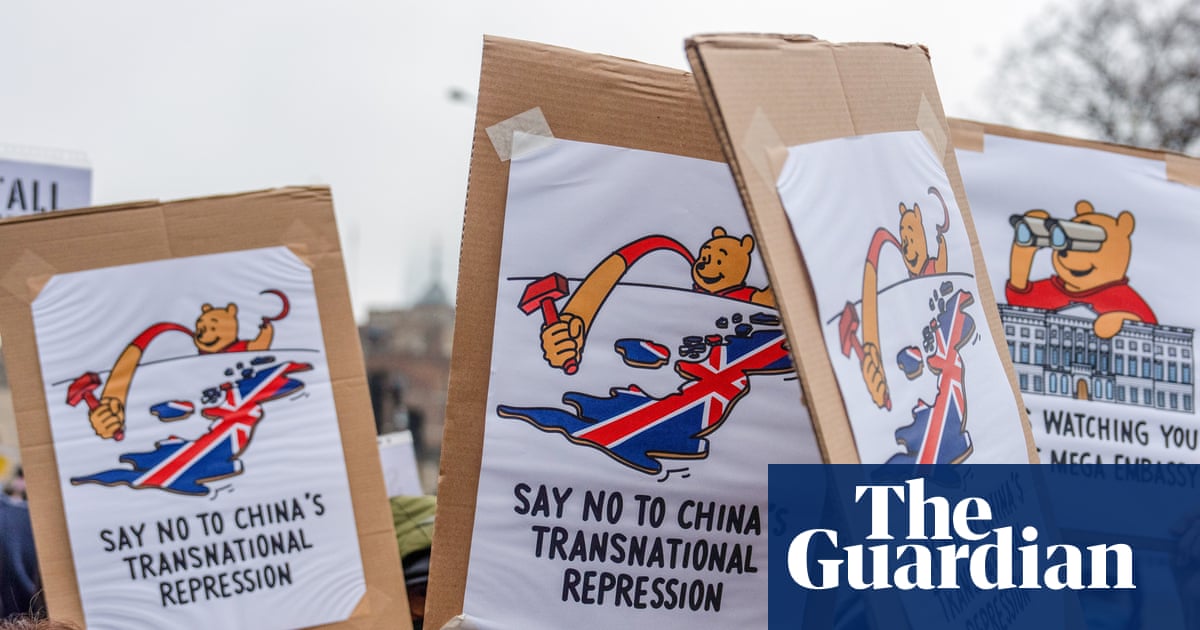
Ministers have asked China to explain redacted designs for a “super-embassy” in London as they prepare for a final decision on the controversial building. What’s at stake and why are the proposals so contentious?
What is China proposing?
If the building goes ahead it would be the biggest embassy in Europe, in the heart of the city and near the Tower of London. The 20,000 sq metre (5 acre) site, which was once home to the Royal Mint, was bought by China for £225m in 2018. Beijing commissioned David Chipperfield, one of Britain’s most respected architects, to design the new embassy and cultural centre for the site.
Why is it controversial?
Dissidents fear it will be used as a centre to spy on, harass and possibly detain opponents of the Chinese government. They point to how in 2022, a Hong Kong pro-democracy protester was dragged into the grounds of the Chinese consulate and then beaten. Local residents are concerned the new embassy will be a magnet for protests and a potential security risk. China hawks and some of Britain’s allies, notably the US, warn that it also poses an espionage risk because of its close proximity to London’s financial district. In June the White House voiced “deep concern” about the new embassy and noted its closeness to the London office of several US banks.
Is it a security risk?
The Home Office and Foreign Office have asked for the construction of a “hard perimeter” around the site to address public and safety concerns. The site used to house trading floors that were wired up to other financial institutions. It is also close to the City’s telephone exchange. Allowing China to build on the site would be an invitation to espionage, according to the Tory MP Iain Duncan Smith. The Metropolitan police have warned the building would attract protests that would impede traffic and require extra policing.
What is the history of the planning application?
China’s initial planning application was rejected by the local Tower Hamlets council in 2022 over safety and security concerns and fears about the impact on tourism. In August 2024, just after Labour came to power, China resubmitted the same application. The application came up in Keir Starmer’s first phone call with China’s president, Xi Jinping, that same month. In October the housing secretary, Angela Rayner, who has responsibility for planning matters, “called in” the application, moving it from local to central government to decide on its merits.
What stage is it at now?
A decision on the application is due by 9 September. As part of the process Rayner has asked China to un-redact parts of the plans that had been “greyed out” in the application. The redacted plans submitted include a basement area with rooms of no identifiable use. In a letter to the Chinese embassy, Rayner pointed to the principle that the public should know what is being proposed before planning permission is granted. She also asked for more details on how the embassy planned to address safety concerns. This would require a further consultation, which could delay the final decision.
What is at stake?
Legally, only planning considerations should influence Rayner’s decision. In reality, she has a difficult political and diplomatic balancing act to perform. On one hand, there are concerns about China’s record on human rights and its potential threat to national and financial security. On the other, the UK is keen to pursue closer ties with China – not least to encourage Chinese investment in the UK’s faltering economy.
What does China say?
So far, the Chinese embassy, currently based in London’s Portland Place where it has been since the 1870s, has said it has no plans to alter the designs for its new HQ. In a statement to the BBC, it said it was “committed to promoting understanding and the friendship between the Chinese and British peoples and the development of mutually beneficial cooperation between the two countries. Building the new embassy would help us better perform such responsibilities”. On objections to the plans it said: “Anti-China forces are using security risks as an excuse to interfere with the British government’s consideration over this planning application. This is a despicable move that is unpopular and will not succeed.” While the fate of China’s London embassy is being decided, China has blocked a UK request to rebuild its embassy in Beijing.








